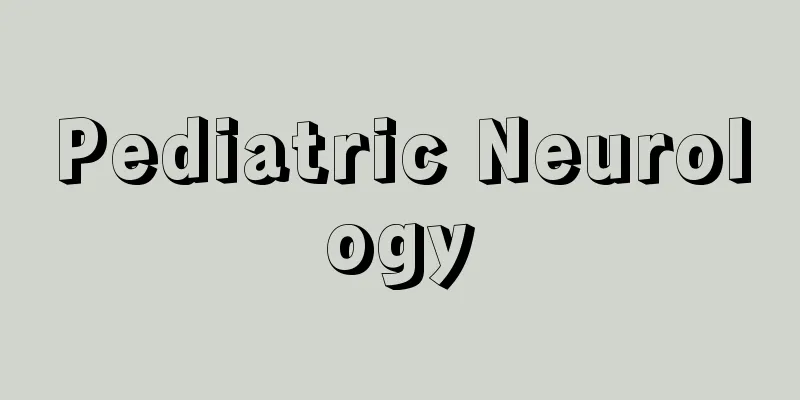Pediatric Neurology

|
We all know that because the causes of patients' illnesses are different, when you go to the hospital to see a doctor, you will be arranged to go to different departments according to the patient's condition. Because each department is used to treat different diseases, and each doctor has his own area of expertise. Many children will be admitted to the psychiatry department because of mental illness. So what does pediatric psychiatry mainly treat? Neurology does not belong to the concept of internal medicine. The nervous system is composed of the brain, spinal cord and peripheral nerves. Mainly diagnose and treat cerebrovascular diseases, cerebral infarction, cerebral hemorrhage, migraine, brain inflammatory diseases, encephalitis, myelitis, epilepsy, dementia, neurodegenerative diseases, metabolic diseases and genetic diseases, trigeminal neuralgia, sciatica, peripheral neuropathy, numbness and weakness of the limbs and myasthenia gravis, etc. Commonly used drugs in neurology clinical practice Reduce intracranial pressure and dehydration, diuretics 1. Mannitol (Mannitolum, D-mannitol) Pharmacological action: Hyperosmotic diuresis, reducing intracranial pressure by producing tissue dehydration. The effect becomes apparent about 20-30 minutes after intravenous injection, reaches its peak in 2-3 hours, and lasts for 6-8 hours. In ischemic cerebrovascular disease, it can scavenge free radicals, reduce blood viscosity and improve blood circulation. Uses: 1. For the treatment of cerebral edema and glaucoma; 2. For edema caused by large-area burns and scalds; Usage: intravenous drip of 20% solution 250-500ml, speed of 10ml per minute, repeat every 4-6 hours as needed. Note: 1. Injecting too quickly may cause transient headache, dizziness, and pain at the injection site; 2. Use with caution in patients with impaired heart and kidney function; 3. Allergic reactions; 4. Crystals are easily precipitated when the temperature is low. Drugs to reduce intracranial pressure, dehydration, and diuretics 2. Glycerosteril (10% Glycerosteril) Pharmacological action: 1. Hypertonic dehydration; 2. Utilize the energy generated by glycerol metabolism. Improve metabolism and have no effect on electrolyte balance in the body Adverse effects. Uses: Dehydration and intracranial pressure reduction Usage: intravenous drip, 200-500ml each time for adults, 1-2 times a day, 200ml takes 2.5-3 hours to complete. Note: Too fast intravenous infusion may cause hemolysis and hemoglobinuria Reduce intracranial pressure and dehydration, diuretics 3. Acetazolamide Also known as acetazolamide, acetazolamide, Diamox Pharmacological action: It is a carbonic anhydrase inhibitor. It is well absorbed orally, takes effect 30 minutes after taking the medicine, reaches its peak in 2 hours, and lasts for 12 hours. Uses: Cardiogenic edema, cerebral edema, epileptic seizures Usage: For the treatment of cerebral edema, 0.25g/time, bid-tid, best effect is achieved after breakfast Note: 1. The following adverse reactions may occur: granulocytopenia, drowsiness, numbness of the face and limbs, and hypokalemia. 2. Avoid using calcium, iodine and broad-spectrum antibiotics at the same time. It should not be used together with anticholine drugs and procaine. 3. Patients with high calcium levels need to follow a low-calcium diet. |
Recommend
Fever and heart rate
After having a fever, not only will your body fee...
Causes of pleural effusion in lung cancer
What are the causes of pleural effusion in lung c...
Dry nose and throat after waking up
Why do I have a dry nose and throat after waking ...
How to check for early breast cancer
Like other malignant tumors, we can hardly see an...
What to eat to prevent cervical cancer
Eat foods high in protein. In the case of a reaso...
Is cold light teeth whitening useful?
Teeth whitening is everyone's dream, but ther...
What kind of head shape is suitable for a fat face
There are many hairstyles suitable for chubby fac...
What are the dangers of glioma
Glioma is a common tumor and has become one of th...
The harm of advanced uterine cancer in women
Among gynecological diseases, uterine cancer is a...
Experts explain to you what are the main early symptoms of bone cancer
Most people are familiar with the appearance of b...
What tests can detect nasopharyngeal cancer
There are many original examination methods. Naso...
What's wrong with stomachache and diarrhea
Many people believe that stomachache and diarrhea...
How to treat liver cancer in its early stages? Four effective methods for treating liver cancer in its early stages
There are many treatments for liver cancer, but l...
Introduction to disease prevention knowledge in spring
I believe everyone knows that spring is a season ...
What are the symptoms of thoracic diaphragmitis?
Pleural septitis is caused by tuberculosis infect...









